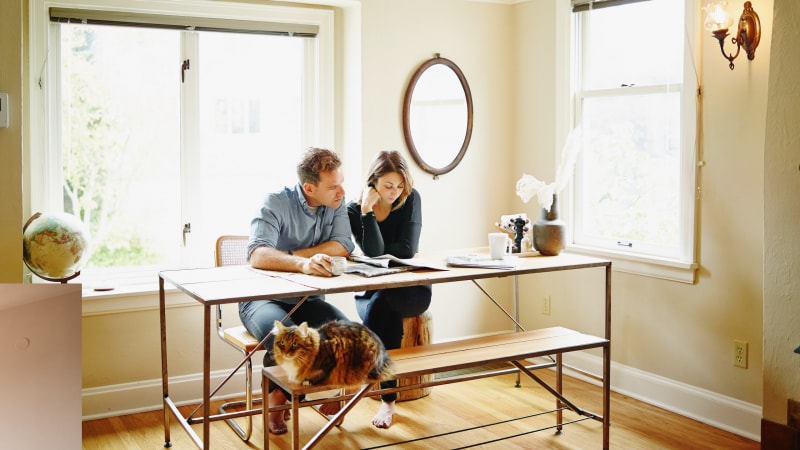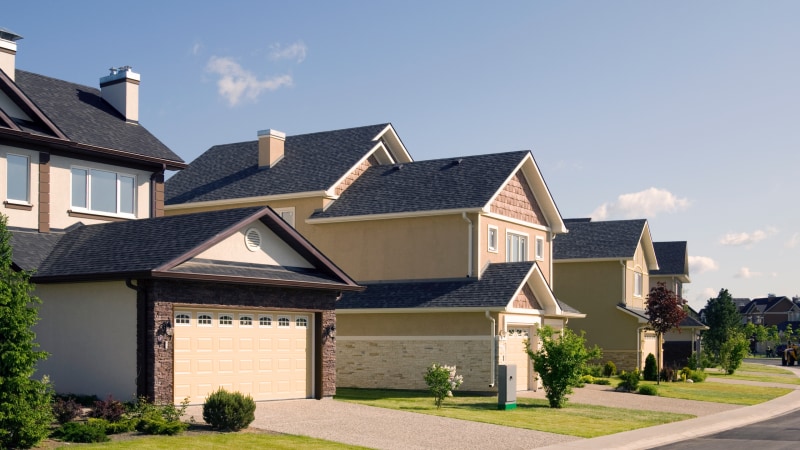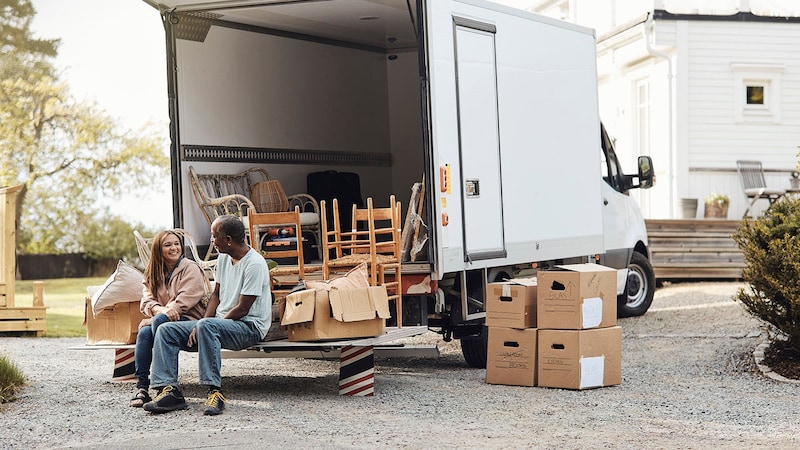What to consider before investing in a foreclosed home

Foreclosed homes may provide a variety of options for homebuyers with a limited budget. Still, it's important to remember that a foreclosed home might also have disadvantages. Learn about the different types of foreclosures, as well as the benefits and disadvantages of purchasing a foreclosed home before deciding if it's the right choice for you.
What is a foreclosure?
A home that’s in foreclosure doesn't necessarily mean it's owned by a bank or mortgage company. Foreclosure is a term used to describe the legal process that occurs when a lender attempts to recover the balance of a loan after a borrower stops making payments. The process usually begins when the borrower fails to meet the terms of the mortgage agreement, like missing a certain number of payments. The stage of the foreclosure process can mean different things for you as a prospective homebuyer.
Types of foreclosure
The foreclosure process occurs over a period of time. Different stages of foreclosure often mean different things for you as a buyer. The types of foreclosure include:
- Pre-foreclosure: The earliest stage of foreclosure occurs when the lender notifies the borrower that they are in default, but haven't taken additional legal action. At this point, the homeowner can sell the property before foreclosure and avoid the negative effects foreclosure can have on their credit history. For you as a buyer, pre-foreclosure can mean a motivated seller who is willing to work with you for a quick resolution.
- Short sale: The term short sale refers to the fact that a lender may be willing to accept less than full repayment on the home than what’s owed on the mortgage. A borrower doesn’t have to be in foreclosure for a short sale to occur, but financial hardship is usually a factor.
- Sheriff's sale auction: Lenders aren't in the business of property sales. Foreclosing on a property leads to extra work and red tape. That's why borrowers are typically allowed a grace period to catch up on missed payments. A sheriff's sale auction occurs during this grace period to allow borrowers the opportunity to pay off the defaulted loan before it affects their credit. For you as a buyer, this can mean a significantly lower home price if the auction doesn't lead to a bidding war.
- Bank-owned properties: Also referred to as Real Estate Owned (REO) properties, bank-owned properties are homes that failed to sell at auction. Banks keep a portfolio of REO properties that may be listed on their website and/or listed with local real estate companies. For you as a homebuyer, bank-owned properties can lead to notable discounts in some cases. However, it's important to remember that bank-owned properties are typically sold as is and often need repairs.
- Government-owned properties: Government-owned properties are homes that have been purchased with a government loan like an FHA loan or VA loan and have been foreclosed. These properties are sold by government registered brokers. For you as a buyer, government-owned properties are much the same as bank-owned properties. However, government agencies may have different closing timelines.
How to find foreclosure opportunities
In the past, finding foreclosed homes was difficult. Today, there are many ways to search for properties in various stages of foreclosure. If you're specifically looking for a property in foreclosure, you should search these websites and publications frequently.
- Local paper: Sheriff sale auctions are typically noted in local newspapers to give residents an opportunity to attend.
- Local banks: Banks keep a portfolio of the foreclosed homes they own. Check if they have information on their website or advertisements.
- City or county courthouse buildings: Foreclosures are a matter of public record. You may be able to find information about pre-foreclosures at your local courthouse.
- Department of Housing and Urban Development (HUD): When borrowers default on a HUD insured loan, HUD pays a lender’s claim and takes back title on the property. Visit the HUD websiteOpens overlay to find government-owned properties in your state.
- Real estate agencies: Many banks and government agencies don't want the burden of owning foreclosed properties, so they often use real estate agents to sell the property. Ask your real estate agent about opportunities, or search your local real estate agent's website for foreclosed properties.
- Foreclosure websites: Some websites, like HomePathOpens overlay, are specifically targeted at selling foreclosed properties.
The pros and cons of purchasing a foreclosed home
Since there are many types of foreclosed homes, the benefits and obstacles you might find during the process are unique. It's important that the initial price isn't the only thing you consider when purchasing a foreclosed home. Take the time to determine whether the benefits outweigh the potential risks of buying a foreclosed home.
The benefits of buying a foreclosed home
- Price: The cost of a foreclosed home may be less expensive than comparable homes in the area. Whether a property is in pre-foreclosure or is already owned by a bank, the seller usually wants to sell quickly. Additionally, homes are sold as is which may lower their purchase price.
- Unique lending opportunities: Since foreclosures are often owned by banks and government institutions, special loans may be available to complete both your purchase and the needed repairs.
- Return on investment: Whether you buy a foreclosed home as your primary residence or intend to invest in the property for a profit, the lower purchase price could mean you get a much bigger return when you sell the home in the future.
The risks of buying a foreclosed home
- Damaged property: Foreclosed properties are often neglected or even vandalized by their previous owner. If these properties are sold as is, you'll be responsible for the cost of necessary repairs.
- Competition: Investors like real estate agents and house flippers are often in a position to make a cash purchase. You may have to bid on numerous foreclosures before you get an opportunity to beat the competition.
- Unexpected complications with the sale process: Numerous bids, hidden costs and extra paperwork can complicate the sales process and lead to a slower closing than for a mortgage loan on a traditional property. Short sales require lender approval while damaged homes can lead to a lower home appraisal. Any or all of these issues can lead to significant delays before you actually own a foreclosed home.
- Hidden costs: Foreclosed properties sold at auction may have additional financial responsibilities attached to them like back taxes and liens. These fees must be paid, and debts must be settled before the purchase can be completed.
Financing options for foreclosed homes
If you've made the decision to buy a foreclosed home, you should learn everything you can about the process and available mortgage options. If you have difficulty securing a typical mortgage for a foreclosed property, a specialized loan may be an option. Your eligibility for certain loans may be determined by whether the home will be your primary residence or an investment property.
- HomePathOpens overlay: Homebuyer program designed by Fannie Mae to market and sell their real estate owned (REO) properties. Homes are listed for sale on the website, complete with photos, detailed descriptions, and resources like financing options to help homebuyers navigate the purchase process
- HomeSteps:Opens overlay Available in certain states, HomeSteps is an organization designed by Freddie Mac. HomeSteps provides benefits – like the ability to opt out of mortgage insurance and an appraisal at origination – for homebuyers who want to purchase foreclosed properties found on their website.
3 things to consider before investing in a foreclosed home
While a foreclosed property can provide unique homebuying opportunities and help you save money upfront, you might not be in a position to handle obstacles or afford the necessary repairs. Consider these three factors before investing in a foreclosed home.
- Do you have the ability to pay for and complete home repairs, some of which may be extensive?
- Are you in a position to handle a closing process that might take several months to complete?
- Do you understand the potential mortgage complications and know what loans you're eligible for?
A foreclosed home can present a variety of opportunities if you have a limited budget. Understanding the potential risks and how to purchase a foreclosed property can help you decide if it's the right option for you. To learn more about purchasing a foreclosed home and available mortgage options, speak to one of our Home Lending Advisors.



